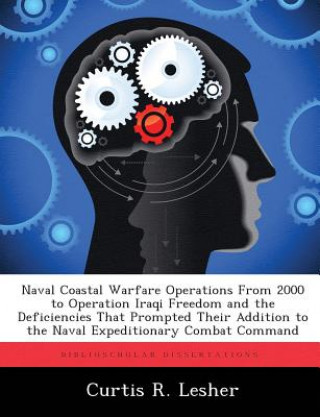
Kód: 08241502
Naval Coastal Warfare Operations from 2000 to Operation Iraqi Freedom and the Deficiencies That Prompted Their Addition to the Naval Expeditionary Com
Autor Curtis R Lesher
Over the last decade the importance of Naval Coastal Warfare (NCW) to the United States Navy as a viable asset in the war on terror and conflicts in the Middle East is on the rise. Because the Navy's focus during the decades betwe ... celý popis
- Jazyk:
 Angličtina
Angličtina - Vazba: Brožovaná
- Počet stran: 58
Nakladatelství: Biblioscholar, 2012
- Více informací o knize

Mohlo by se vám také líbit
-

My Guide to American English
745 Kč -

Histoire Des Invalides ... Illustree Par Eugene Charpentier.
495 Kč -
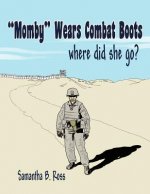
''Momby'' Wears Combat Boots
461 Kč -

Chuckles and Hurricane Rita
621 Kč -

EuroDiversity
6712 Kč -

Edge of Civilization
455 Kč -

Greater Trumps (Hardback)
579 Kč -

Lust and Basketball
474 Kč -

Glad to be a Resident
410 Kč -

Teaching about HIV and AIDS - French Edition
277 Kč -
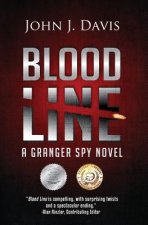
Blood Line
589 Kč -

Scarecrow's Kiss
678 Kč -

Historic Grunes Gewoelbe at Dresden
613 Kč -

Mingled Yarn
673 Kč -
![Complete Works of Lord Byron. with a Biographical and Critical Notice by J. W. Lake. [With a Portrait.] Vol. V. Complete Works of Lord Byron. with a Biographical and Critical Notice by J. W. Lake. [With a Portrait.] Vol. V.](https://media.libris.to/jacket/08001217t.jpg)
Complete Works of Lord Byron. with a Biographical and Critical Notice by J. W. Lake. [With a Portrait.] Vol. V.
1059 Kč -

Tragic Comedians. a Study in a Well-Known Story. Enlarged from the Fortnightly Review.
584 Kč -

Compleat Mendicant
559 Kč -

Septennial Parliaments Vindicated
384 Kč -

Papcy and the First Councils of the Church
725 Kč -

Napoleon sagt
448 Kč -
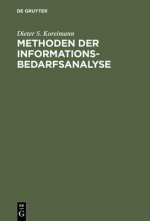
Methoden der Informationsbedarfsanalyse
4773 Kč
Darujte tuto knihu ještě dnes
- Objednejte knihu a zvolte Zaslat jako dárek.
- Obratem obdržíte darovací poukaz na knihu, který můžete ihned předat obdarovanému.
- Knihu zašleme na adresu obdarovaného, o nic se nestaráte.
Více informací o knize Naval Coastal Warfare Operations from 2000 to Operation Iraqi Freedom and the Deficiencies That Prompted Their Addition to the Naval Expeditionary Com
Nákupem získáte 165 bodů
 Anotace knihy
Anotace knihy
Over the last decade the importance of Naval Coastal Warfare (NCW) to the United States Navy as a viable asset in the war on terror and conflicts in the Middle East is on the rise. Because the Navy's focus during the decades between the Vietnam War and the attack on the USS Cole was primarily on the former Soviet threat, shallow water forces were considered low priority. As a result NCW became a low priority force manned primarily by reservists. From the year 2000 through Operation Iraqi Freedom (OIF), NCW has operated with deficiencies in manpower, weapons, ammunition, vehicles, communications and training. NCW units have participated in many overseas exercises prior to OIF. During these exercises the threat of rear area attacks from terrorist groups became a major concern for all U.S. forces. In assessing the threat NCW found that not only was the threat to U.S. ships in the ports they were protecting more at risk, but that their own lodging sites and personnel in transit to duty stations were very vulnerable to attack. By the time OIF was underway NCW had not addressed most of the deficiencies they had seen during previous exercises and now they would be asked to perform missions that had never been attempted by NCW units before. Force protection missions at Kuwaiti and Iraqi ports along with a vital mission at the Iraqi oil platforms would need to succeed regardless of the problems encountered by the NCW units. The reader will see that there are four main deficiencies that NCW needs to solve. 1) Manning that is inadequate, untrained and unsuited to rapid deployment because it is mainly a reserve force. 2) Inadequate amounts and types of equipment. 3) Communications systems that do not allow communications between all units in theater. 4) NCW units are low priority when it comes to funding. Very little unclassified historical information or lessons learned is available, so a brief historical account of Naval Coastal Warfare Group One units during a few routine e
 Parametry knihy
Parametry knihy
Zařazení knihy Knihy v angličtině Society & social sciences Education
1646 Kč
- Plný název: Naval Coastal Warfare Operations from 2000 to Operation Iraqi Freedom and the Deficiencies That Prompted Their Addition to the Naval Expeditionary Com
- Autor: Curtis R Lesher
- Jazyk:
 Angličtina
Angličtina - Vazba: Brožovaná
- Počet stran: 58
- EAN: 9781288290727
- ISBN: 9781288290727
- ID: 08241502
- Nakladatelství: Biblioscholar
- Hmotnost: 122 g
- Rozměry: 246 × 189 × 3 mm
- Datum vydání: 13. November 2012
Oblíbené z jiného soudku
-

Oxford IB Diploma Programme: IB Economics Course Book
1594 Kč -

OET Preparation
246 Kč -

Cambridge IGCSE (R) & O Level Complete Physics: Student Book Fourth Edition
929 Kč -

Business Partner B2 Workbook
462 Kč -

Business Partner B1 Workbook
435 Kč -

Imagine If...
306 Kč -

OET Reading Subtest Preparation
343 Kč -

Vol 2 Blackletter Lettering Adventures
640 Kč -

AS & A Level Maths For Dummies
455 Kč -
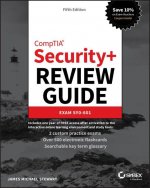
CompTIA Security+ Review Guide - Exam SY0-601
621 Kč -

Hanbo Jutsu: Use of Hanbo, Cane and Walking Stick for Self Defense
285 Kč -

Amazing Autistic Brain Cards
1000 Kč -

Embodied Teen
545 Kč -

Blue Book of Grammar and Punctuation: An Easy- to-Use Guide with Clear Rules, Real-World Examples , and Reproducible Quizzes, Twelfth Edition
393 Kč -

Positive Discipline Tools for Teachers
433 Kč -

Oxford IB Diploma Programme: IB Theory of Knowledge Course Book
1466 Kč -

Oxford IB Study Guides: Economics for the IB Diploma
1120 Kč -

Speed and Accuracy: Division
210 Kč -

GCSE Spanish Exam Practice Workbook (includes Answers & Free Online Audio)
220 Kč -

KS3 Maths 10-Minute Weekly Workouts - Year 7
199 Kč -

Vertical Academy
919 Kč -

Grade 9-1 GCSE Maths AQA Revision Question Cards - Higher
241 Kč -
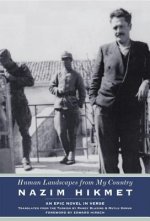
Human Landscapes from My Country
656 Kč -

Cambridge IGCSE (R) & O Level Complete Chemistry: Student Book Fourth Edition
992 Kč -

Oxford IB Diploma Programme: IB Course Preparation Mathematics Student Book
992 Kč -

1000 TRIOS or gapped sentences for Cambridge Advanced and Proficiency Exams
611 Kč -

Business Partner B1+ Workbook
462 Kč -
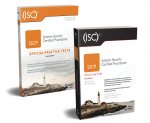
(ISC) SSCP SG & SSCP Practice Test Kit, 3e
1745 Kč -

Einkorn
519 Kč -

Czech Verbs
954 Kč -

Motivation and Reinforcement
1164 Kč -

Pearson Edexcel International GCSE (9-1) English Language B Student Book
1328 Kč -

Read Write Inc. Phonics: Red Ditty Book Bag Books (Mixed Pack of 10)
1586 Kč -

Oxford International Primary Maths Second Edition: Practice Book 1
323 Kč -

Forensic Linguistics Articles
417 Kč -

Corrected Squares of The Book of Abramelin
14513 Kč -

Exam Prep for Microeconomics by Pindyck & Rubinfeld, 6th Ed.
1089 Kč -

KS3 Maths 10-Minute Weekly Workouts - Year 8
199 Kč -

Reading Mind - A Cognitive Approach to Understanding How the Mind Reads
556 Kč -

Ganzheitliche Sprachförderung
807 Kč -

Internet Protocol over Link-16
1646 Kč -

Effect of Registration Errors on Tracking in a Networked Radar System
1646 Kč -

Princeton Review SAT Premium Prep, 2021
1141 Kč -

CEH v11 Certified Ethical Hacker Study Guide + Practice Tests Set
1872 Kč -

10 Practice Tests for the SAT, 2021 Edition
846 Kč -
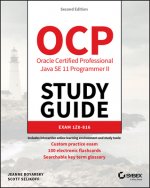
OCP Oracle Certified Professional Java SE 11 Programmer II Study Guide - Exam 1Z0-816 and Exam 1Z0-817
1336 Kč -

Prepared
891 Kč -

Powerful Teaching: Unleash the Science of Learning
665 Kč -

Physics for You
1249 Kč
Osobní odběr Praha, Brno a 12903 dalších
Copyright ©2008-24 nejlevnejsi-knihy.cz Všechna práva vyhrazenaSoukromíCookies



 Vrácení do měsíce
Vrácení do měsíce 571 999 099 (8-15.30h)
571 999 099 (8-15.30h)